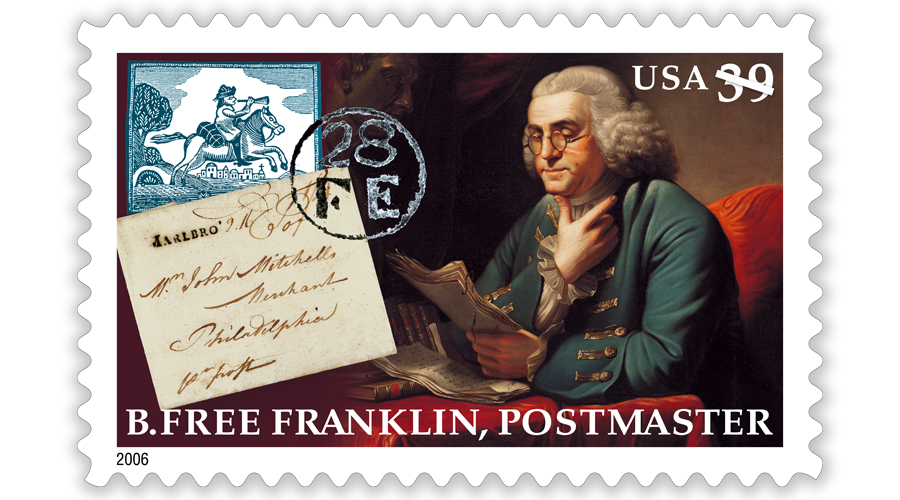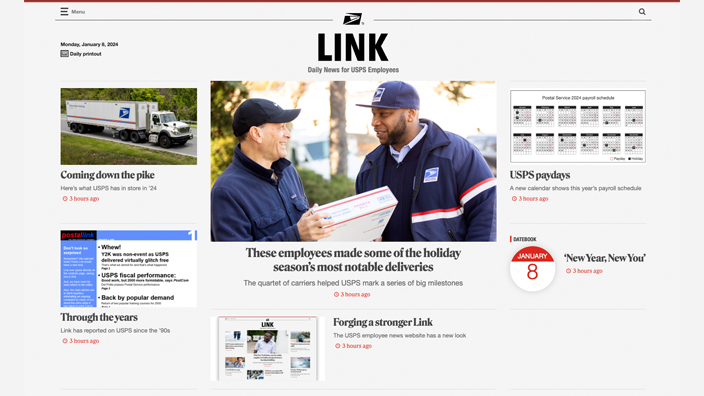Perhaps it’s fitting that the Postal Service, an organization that has touched every corner of American life, can trace its roots to the most quintessential American.
Benjamin Franklin, the nation’s first postmaster general, was born 318 years ago on Jan. 17, 1706.
He was a signer of the Declaration of Independence and U.S. Constitution and an ambassador to France. He was also a newspaper publisher, volunteer firefighter, bookstore owner, cartoonist and the inventor of bifocals, swim fins and the lightning rod.
That ingenuity and flexibility served him well as the nation’s first postmaster general, a monumental and crucially important undertaking.
Secure communications were essential to the Revolutionary cause. In 1775, the Second Continental Congress chose Franklin to lead the wartime postal effort.
The year before, Franklin had been dismissed as the British Crown-appointed joint postmaster general for his sympathies to the Colonies.
He had served the Crown successfully for years and his improvements helped its post turn its first North American profit.
The Crown’s loss was the Colonies’ gain: Franklin would use the experience he gained toiling for the Crown in the fight against it.
His tenure as postmaster general was brief — he served only until November 1776 — but transformative.
“America’s present Postal Service descends from the system Franklin placed in operation,” wrote the authors of Publication 100, The United States Postal Service: An American History.
Franklin lived up to his own aphorism, which he penned under the nom de plume Poor Richard: “Hide not your Talents, they for Use were made. What’s a Sun-Dial in the shade?”
The “History” column appears occasionally in Link.



